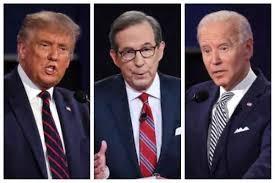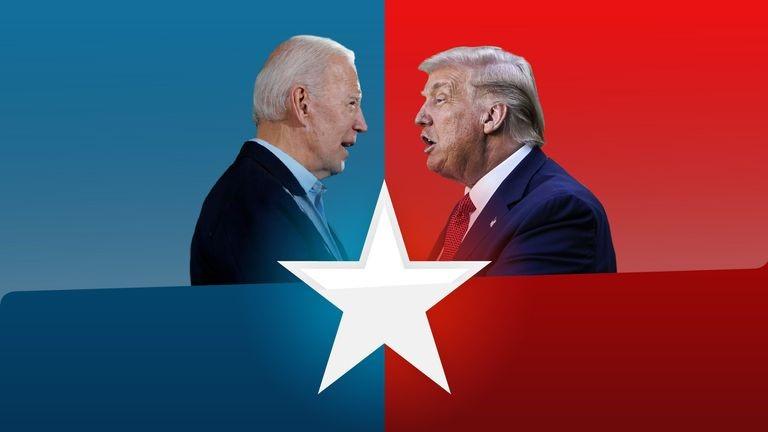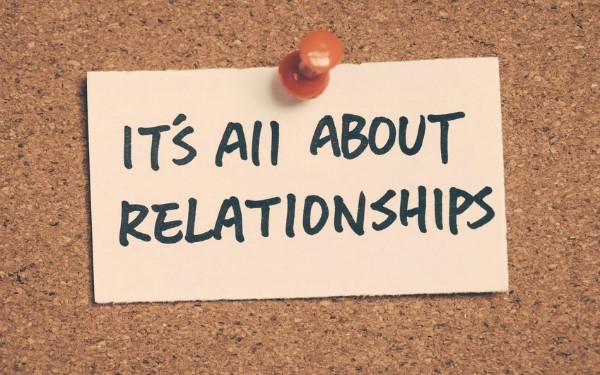
3 minute read
7
from The Stag Issue One
by TheStag.
The Only Guide You’ll POLITICS Need to the US Elections
GOP? Caucuses? Electoral College? No, me neither. But seeing as the Leader of the Free World, a.k.a. Trump, is running a second time, we may be in for another four years of staggering drama, so I decided it was time to catch up on what the USA elections are all about. As we all know, the fight is on between the Republican (GOP) Party’s candidate, Donald Trump (known as the incumbent as he is currently the president), and the Democratic Party’s candidate is Joe Biden, who was the
Advertisement
Vice President during Obama’s presidency. Both men are in their Seventies. Donald Trump will be 74 years if he gets a second term in office, while
Joe Biden will be the oldest first-term
President in history at 78. America has fixed-term elections which take place every four years. A presidential candidate must meet the constitutional requirements; they must be a natural-born American citizen, at least 35 years old and must have been a resident in the US for at least 14 years. If you are a US citizen and over 18 years old, you should be eligible to vote in the US elections.
However, many states have passed laws requiring voters to show identification documents to prove who they are before they can vote. These are often initiated by Republicans under the excuse of guarding against voter fraud, yet Democrats accuse them of using this as a form of voter suppression as it is often poorer, minority voters who are unable to provide ID like a driving licence. The presidential candidates are elected through a series of primaries and caucuses which will take place in each state. A primary is just an election used to choose a party’s candidate for the presidency, whereas a caucus is much less common; it is more like a meeting where parties will try to persuade the electorate to vote for them
How the amount of votes in each state is allocated

or their party. States that use caucuses are usually those which are geographically large but thinly populated. Once the candidates have been chosen for each party, both candidates must compete for Electoral College votes. The Electoral College is made up of a number of representatives from each state, which is partly decided based on the state’s population. There are a total of 538 seats up for grabs, so the winner is the candidate that wins 270 or more. The use of the Electoral College means that voters must vote for state-level representatives, meaning that it is possible for a

candidate to win the most individual votes nationally, but still lose in the Electoral College. This happened in 2016, when Hillary Clinton won almost 3 million more votes than Trump nationally, but his support was more concentrated within each state, meaning he won the most Electoral College votes. Most states have a winner-takesall system, meaning that whichever candidate wins the most votes within that state is given all of that state’s electoral college votes. A lot of states are also known for strongly leaning towards one party or another, so the focus is usually on a dozen or so states where either of them could win. These states are known as the battleground states. Complicated? Yes. But hopefully this guide has made the US election system slightly clearer for you as you watch the oncoming political dramas unfold.

ELSA AUER, YEAR 13, WATT HOUSE
Top Ten playground insults quotes from the
Presidential Debate

10. “You graduated either the lowest or almost the lowest in your class” 9. “You could’ve never done the job we did “ 8. “Everybody knows he’s a liar” 7. “Under this president, we’ve become weaker, sicker, poorer, more divided and more violent” 6. “A lot of people died and a lot more are going to die unless he gets a lot smarter, a lot quicker “ 5. “You were a disaster “ 4. “Do you have any idea what this clown is doing?” 3. “I’ve done more in 47 months than you’ve done in 47 years “ 2. “I hate to raise my voice but why shouldn’t I be different than the two of you? “
1. “Will you shut up, man? “
KATRINA EVERSHED, YEAR 13, SCHOOL HOUSE
L-R: Donald Trump, Republican candidate; Chris Wallace, Moderator; Joe Biden, Democratic candidate




